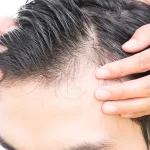Temporomandibular joints (TMJ) are located on either side of your face, in front of your ears. They connect the lower jawbone to your skull and are responsible for movements like chewing and speaking. TMD is Temporomandibular Joint Disorder. TMJ disorders affect the muscles that control the jaw and the jaw joint. Their complex nature makes them challenging to diagnose and treat.
In the U.S., around 12% of people suffer due to TMJ at a given time. The condition affects women more frequently than men, with nine women experiencing severe jaw pain and restricted movement for every one man. Both a doctor and a patient need to understand the symptoms, causes, and treatments for treating TMJ disorder in Los Gatos.
Common TMJ symptoms
TMJ disorder or dysfunction is more common in women than men and occurs in people 20 to 40 years of age. Some common symptoms include:
- Headache
- Earache
- Jaw pain
- Difficulty in the wide opening of the mouth
- Difficulty chewing
- When opening or closing the mouth, grating, popping, or clicking sounds in the jaw
- Pain in the neck or shoulders
- Swelling on the side of your face
- Ringing or tinnitus in the ears
- Tooth pain
Treatments of TMJ disorder/dysfunction
- Lifestyle changes or self-care: In some cases, people can treat TMJ disorders at home by self-care and lifestyle changes that can easily handle mild to moderate symptoms.
Self-care treatments include reduced movement of the jaw, eating soft foods, avoiding chewing gum, or avoiding tensing of the jaw.
Alternatively, gentle exercises like slight jaw stretching can be recommended, and massaging around the gums may also help. It may be helpful to combine both rest and gentle exercise to ease TMJ disorder symptoms. A healthcare professional may be able to recommend the most appropriate exercises and lifestyle changes that may be beneficial.
- Treating existing issues
There are specific treatment options available for TMJ disorders caused by pre-existing conditions.
For example, a doctor can provide a mouthguard if a TMJ dysfunction is caused by tooth clenching in sleep. However, if the cause of TMJ disorder is degenerative conditions like osteoarthritis, an option would be steroid injection. This steroid, when injected, may ease pain, swelling, and other symptoms. An injection may resolve the symptoms of TMJ disorders permanently in some cases, and in others, it may be a temporary fix. Over-the-counter medications may reduce discomfort temporarily.
- Surgery
If you have tried all other treatment options for your TMJ disorder and you are still experiencing pain, then only you should consider TMJ surgery. While TMJ surgery may be the best option for you, it’s crucial to weigh your options carefully.
TMJ surgery includes three procedures: arthrocentesis, arthroscopy, and open-joint surgery. Depending on the symptoms and the complexity of the problem, the type of surgery required will vary.











